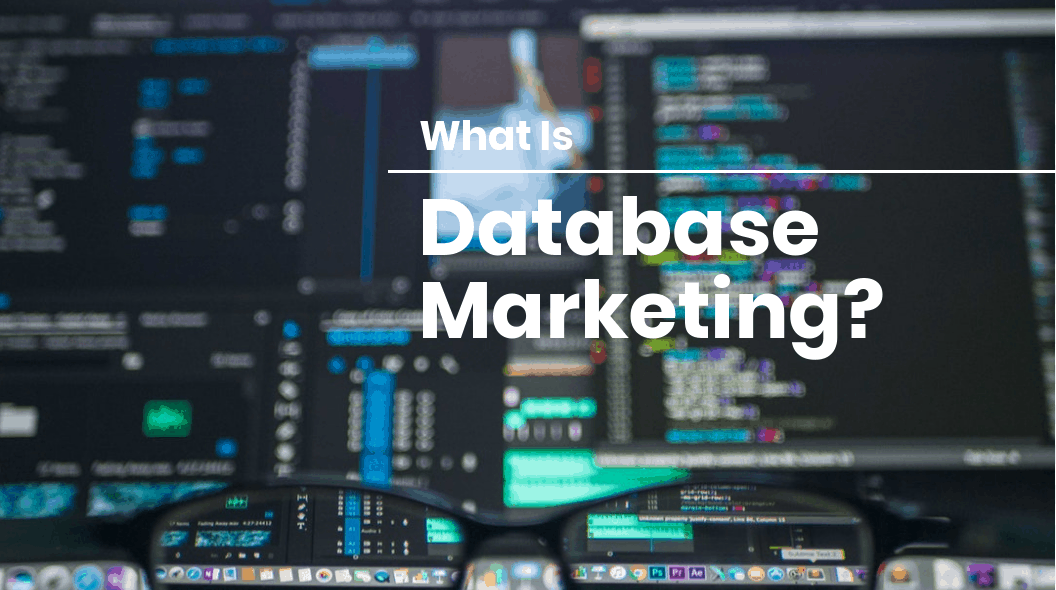As the name suggests, database marketing refers to making use of databases of potential customers to promote personalized marketing communications leading to product promotions. In simple words, database marketing is a form of direct marketing which is more focused on personalizing the marketing process by using the audience’s personal data. Also, never mistake database with those traditional mailing lists.
Direct Vs. Database Marketing
Unlike direct marketing, database marketing pays attention to the audience’s data and develop different customer behavior models to make the marketing process a success. Thus, each customer behavior model is targeted in a different way. Consequently, database marketers are often used to huge data warehouses and utilizing a great amount of data about the targeted audience leads to a personalized marketing solution – increasing sales, revenue, and brand awareness. The database information may contain
- User’s personal information
- Feedbacks
- Sales History
- Marketing communications
- Demographic stats
- Relationship between business and consumers
- Other useful data
Database marketers believe that detailed data about the customer base leads to determining the target segment more accurately as compared to traditional segmentation techniques. Thus, database marketing help businesses to attract buyers per their interests, needs, and behavior to other products in the market.
Benefits of Database Marketing – Is it Worth it?
If employed correctly, database marketing is definitely worth it. With the advent of digital marketing, database technology has improved much from the past few years. Also known as CRM (customer relationship management), the data gathered by automated technology is further analyzed to deliver targeted marketing campaigns.
Some benefits of utilizing database marketing to boost your business sales, brand awareness, and customer base are as follows:
* Targeted Marketing
Selling the right products or services to the right audience should be the key aspect of any marketing campaign. In database marketing, customers are targeted for certain products or services based on their sales history, feedback, likings, and overlapping interests. Thereby, database marketers analyze the database data to determine their common traits and what kind of audience would buy certain kind of services or products.
* Customer Loyalty
As database marketing is all about personalized marketing campaigns, the personalized selling process showcases your care about the customers. Salespeople and marketers analyze the customer activity and send in personalized notes every now and then. Therefore, customers are more likely to come back and purchase more. As your customer base increases, loyal customers will eventually recommend your services or products to their friends, family, and colleagues.
Cost of Database Marketing
The only drawback of setting up a CRM or database marketing in your business is its cost. Database marketing costs more than traditional marketing tactics and requires professional database marketers to take care of the major infrastructure. But if employed correctly, it can generate enough sales to cover the spent amount and still yield you a considerate profit. Sounds good?
We’re living in an era of relationship marketing. If potential customers know that you care about them, they’ll eventually come back for more, recommend your products/services, and stay loyal in the long run.
One of the biggest, if not the main challenge when it comes to any form of marketing would probably be finances. Let’s face it, capital is everything and without it, many things will and do fail. The ability to invest heavily is not an option for many people or organizations whether that be with time or money and if rushed, you may not be successful in this area of marketing. An option to get around this is to know that you do not have to start out big.
Instead, take your time and do the research to get prepared for a bigger database marketing project. Simply put, if you are not able to maintain your database and have a database marketing strategy in place, it may end up costing you more in the end. To break this down even further, gathering a large number of data and acquiring a large number of subscribers will substantially increase your monthly bill if subscribed to a marketing platform, which is built to help small businesses to be able to access the same tools, resources, and technologies as the larger and more established competitors that allowed them to become successful. Facebook is one of the most popular examples.
Starting small and having patience will give you a better chance of being successful. Your database marketing solution does not have to be set up in one day or even in a week. In time, you will have the perfect management system set up for your business or organization.
Database Marketing and Its Challenges
There is no doubt that database marketing has some very captivating benefits, but it is very important to understand the challenges of this type of marketing technique if it is to be done successfully. Many marketers struggle with trying to execute data, and in this section, we are going to look at some of the main reasons why marketers struggle as well as some solutions to overcome those struggles.
Data Degradation
Data degradation, most commonly known as data decay, you may also hear or see the terms bit rot, or data rot. All these words describe a rather discouraging event for the marketer when a prospect or a customer makes a life change such as moving to a different location or address, change their name, get promoted or change their job altogether. Even getting something as simple as a new email address relates to this category.
Anytime something like this happens it is known as data decay. It means that the person’s profile in question will no longer be “in date”, which is a marketer’s nightmare. The best way to slow down data decay, and stop profiles from becoming out of date, which happens about 2-3% for a properly maintained database, is to turn your attention to more stable information that may not change often.
This may include a personal email versus a business email for example or a name, but the best rule of thumb is to clean your database to keep up with your consumer. This will require you to update older information and to eliminate non-pertinent data altogether.
Data Accuracy
Simple things can have a huge impact, both negative and positive on any database if strategic tools are not put into place. These tools could include drop-down menus to enter important information such as birth dates, sex, and age or checkboxes to enter information such as ethnicity or gender. The reason for these tools would be to eliminate any typos, inaccurate information, or any eligible information from your data. These things could negatively affect the quality of your database or misleading information on your targeted audience.
Being Timely
It is important to act on your prospects data as quickly as possible once it is collected and studied. It is crucial when it comes to database marketing to take advantage of the interest of the consumer and their relationship to your brand. Your mission should be delivering quality products, services, and experiences as quickly as possible to your customers and potential customers. Some marketers do not take heed to this simple action and that lack of action causes them unnecessary challenges.






